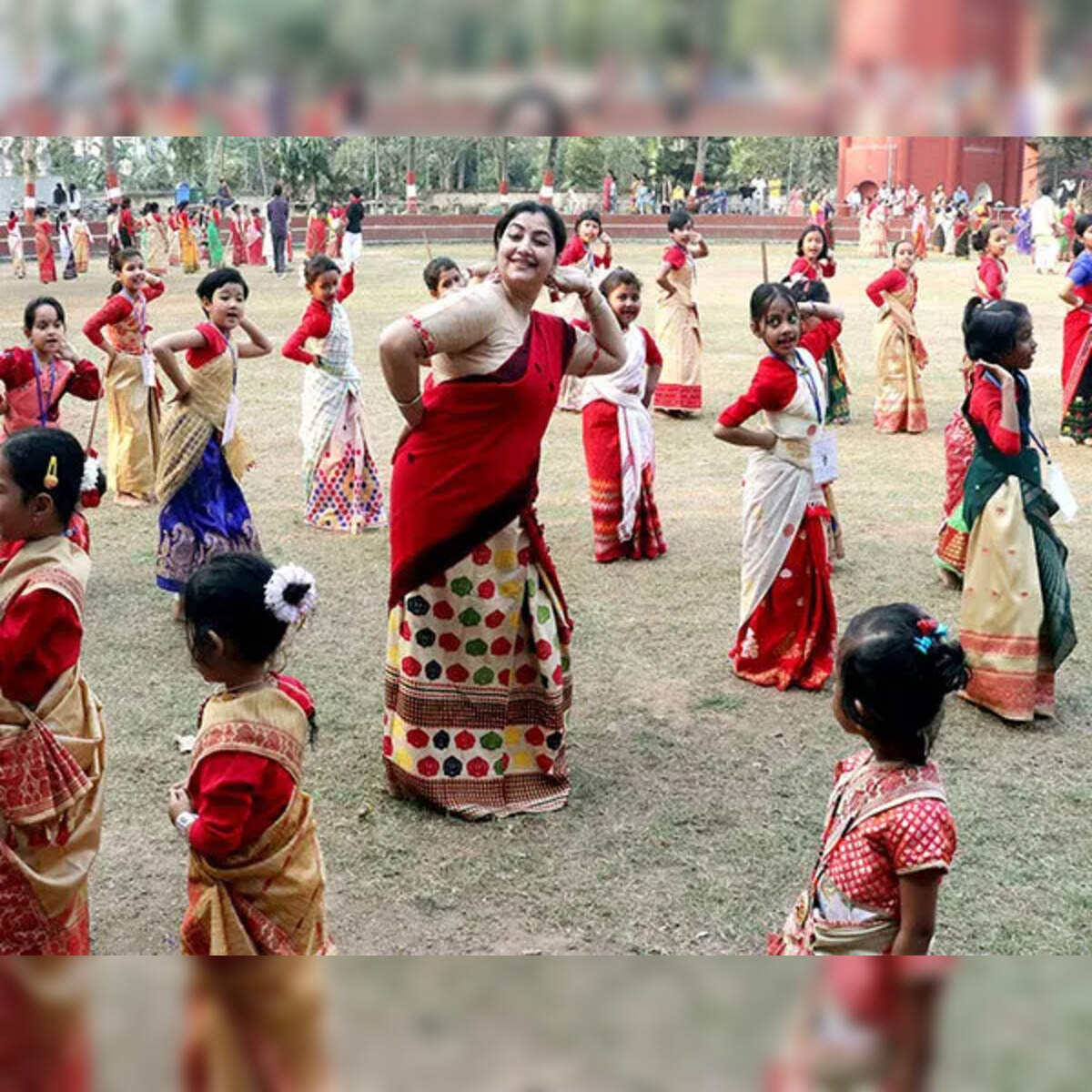Rongali Bihu
Rongali Bihu, also known as Bohag Bihu, is a key festival in Assam. Celebrated in mid-April, it marks the Assamese New Year and the onset of the agricultural season.
Historical Context
Rongali Bihu has deep roots in Assamese culture. It signifies the arrival of spring and the beginning of the harvesting season. The festival has evolved over centuries but retains its core cultural essence. It is celebrated primarily by the Assamese people and reflects their agricultural lifestyle.
Duration and Structure
The festival spans seven days, with each day known as ‘Xaat Bihu.’ The first day is dedicated to cattle, the second to humans, and the third to deities. Each day involves specific rituals, feasting, and cultural performances, making it a multi-faceted celebration.
Rituals and Traditions
On the first day, called Goru Bihu, cattle are bathed, adorned, and worshipped. This ritual marks the importance of cattle in Assamese agriculture. The second day, Manuh Bihu, focuses on human celebrations with special dishes prepared. The third day, Gosain Bihu, is dedicated to worshipping deities.
Culinary Specialties
Food plays a vital role in Rongali Bihu. Traditional dishes such as ‘Chira’ and ‘Pitha’ are prepared and shared among families and friends. These delicacies enhance the festive atmosphere and reflect Assamese culinary heritage.
Month: Current Affairs - April, 2025
Category: Art & Culture Current Affairs






